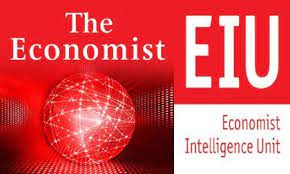The Economist Intelligence Unit (EIU), renowned for its global business intelligence and market insights, has foreseen a crucial shift in Nigeria’s monetary policy. According to the EIU’s latest report on the Nigerian currency, the naira’s value is under immense pressure, leading the federal government to consider reverting to a system with more control over the exchange rate. The move is seen as an attempt to halt the continuous devaluation of the naira and stabilize the currency’s value.
The report highlights the challenges faced by the Central Bank of Nigeria (CBN) in managing a flexible exchange rate system, as the country grapples with high and rising inflation. Before the recent shift in policy, Nigeria had achieved some success in managing the naira’s value and its impact on the overall economy. However, with mounting pressures on the currency and a shortage of foreign currency, the CBN may have to intervene more actively in the foreign exchange market to curtail further devaluation.
The EIU predicts that from the second half of 2023, the Nigerian government may implement heavier exchange-rate management to address the slide of the naira beyond N800:US$1. Currently, the exchange rate stands at N770:US$1, and experts believe that tighter management may be necessary to safeguard the country’s economic stability.
While Nigeria’s foreign reserves are relatively liquid and can cover imports for the next six to eight months, the report suggests that addressing the foreign currency shortage remains critical. The government has a window of opportunity to increase revenue, combat financial leaks, and reduce debts before a more drastic response may be required.
Looking into the future, the EIU estimates that the naira’s value will experience a gradual decline, projecting an average rate of N815 to US$1 in 2024 and further dropping to N1,018 to US$1 by the end of 2027. This expected depreciation is anticipated to be slower than that observed in the black-market exchange rate during the same period.
The forex market in Nigeria has already witnessed fluctuations, with the naira depreciating by 0.93 percent at the Investors’ and Exporters’ (I&E) window. A shortage of dollars and declining turnover contributed to this decline. The CBN’s efforts to unify exchange rates have led to partial unification, but the report notes inconsistencies in applying a more liberal currency regime, leading to potential concerns among foreign investors.
The EIU report further emphasizes that foreign-exchange scarcity is likely to persist in the near term, prompting the CBN to adopt a more active role in managing the exchange rate to counter rapid price rises. As the government navigates these challenges, it will be essential to strike a balance between exchange rate stability and fostering foreign investments to achieve sustainable economic growth.









